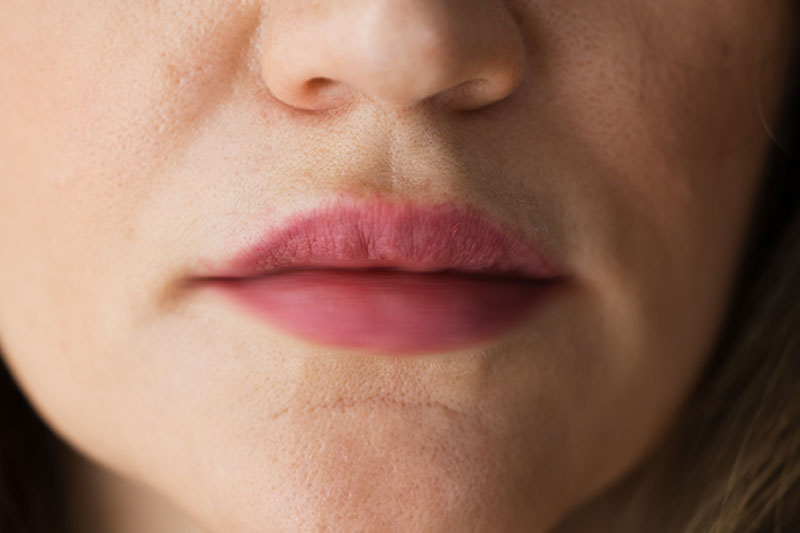
Tingling lips are more common than you think, and it can happen to your tongue, throat and palate, too. Tingling or numbness can be nothing to worry about or a symptom of something more serious, so never ignore it. Instead, see if you can identify what causes it. The information below can help.
If you experience tingling too often, then talk to your doctor; every major condition can be treated successfully if discovered soon enough. Here are seven reasons your lips are tingling.
1 – You’re experiencing an allergic reaction
Tingling is a common symptom of allergic reactions. Sometimes you’re not even aware that you’re allergic to certain foods until you experience an adverse reaction. You might also experience fever, an upset stomach and dizziness. You can be allergic to food and medicines, so don’t consume anything you’re unsure of.
Keep in mind you might be allergic to cosmetics, creams and lotions as well, so it’s not always something you eat! Stay vigilant and know yourself.
2 – You might have a mineral or vitamin deficiency
If you constantly have a tingling sensation in your body, you might have deficient oxygen irrigation, which happens when your body doesn’t produce enough red blood cells. Vitamin and mineral deficiency, meaning a poor diet, is often the reason for this, so try eating a balanced diet and eat at least three times a day.
Vitamin deficiencies are more common than you think, as most Americans have some kind of nutrient deficiency.
3 – You’re suffering from food poisoning
Suppose you experience lip and throat tingling suddenly and have nausea, vomiting, upset stomach or difficulty breathing. In that case, you might be suffering from food poisoning, meaning you ate something with lots of bacteria or toxins. This is most common with seafood, which has a noticeably short shelf life, but it can happen with other foods, too.
Avoid eating raw meat and seafood and cook your food thoroughly to prevent food poisoning. Always know where your food comes from.
4 – You’re hyperventilating
The most common cause for tingling lips is hyperventilation, and it happens when you exercise or even when you experience a panic attack. Too much oxygen will make you feel dizzy; you might experience blurry vision and might faint, so be careful.
The good news is that hyperventilation lasts only a few seconds. You can always breathe into a paper bag to increase carbon dioxide levels in your body, but just sitting down and relaxing usually does the trick.
5 – You might have low blood sugar levels
This is particularly common in people with diabetes, but everyone can experience low sugar levels. It’s called hypoglycemia, and it usually comes with dizziness, blurry vision, pale skin and fainting. If you think you might have low blood sugar levels, have a soda or a glass of juice, and you should feel better almost immediately. If you don’t, you might have something else, so talk to your doctor. To avoid hypoglycemia, don’t skip meals!
6 – You could have shingles
This rare virus is also responsible for causing chickenpox, and it often comes with rashes, irritation, blisters and itchy skin. You’ll know if you have one or several of these symptoms, and the tingling lips are the least troublesome.
Shingles are common in people with weak immune systems, and it’s even more common in older people. Shingles is an infection caused by a virus, so although you cannot eliminate the virus easily, you can treat the condition efficiently.
7 – You might have a degenerative disorder or oral cancer
Let’s not over-react here, but tingling lips are a symptom of severe diseases like the Guillain-Barré syndrome and oral cancer. However, chances of having them are slim; if you experience this feeling often, talk to your doctor.
If you have tingling lips along with other symptoms like a sore throat, difficulty swallowing, dizziness, ear pain or difficulty breathing, then you should visit your doctor today. We’re sure you’re okay, though, but call your medic just in case.
Watch Out for Tingling Lips
Tingling lips can be nothing, but they can be a symptom of something serious. If you experience this often, talk to your doctor, and always try to identify what you were doing and eating when you felt it. That’s the best way of making sure you know what causes it.
Know yourself and stay alert to strange feelings and sensations. You know your body better than anyone, so be mindful about your health and stay safe!


